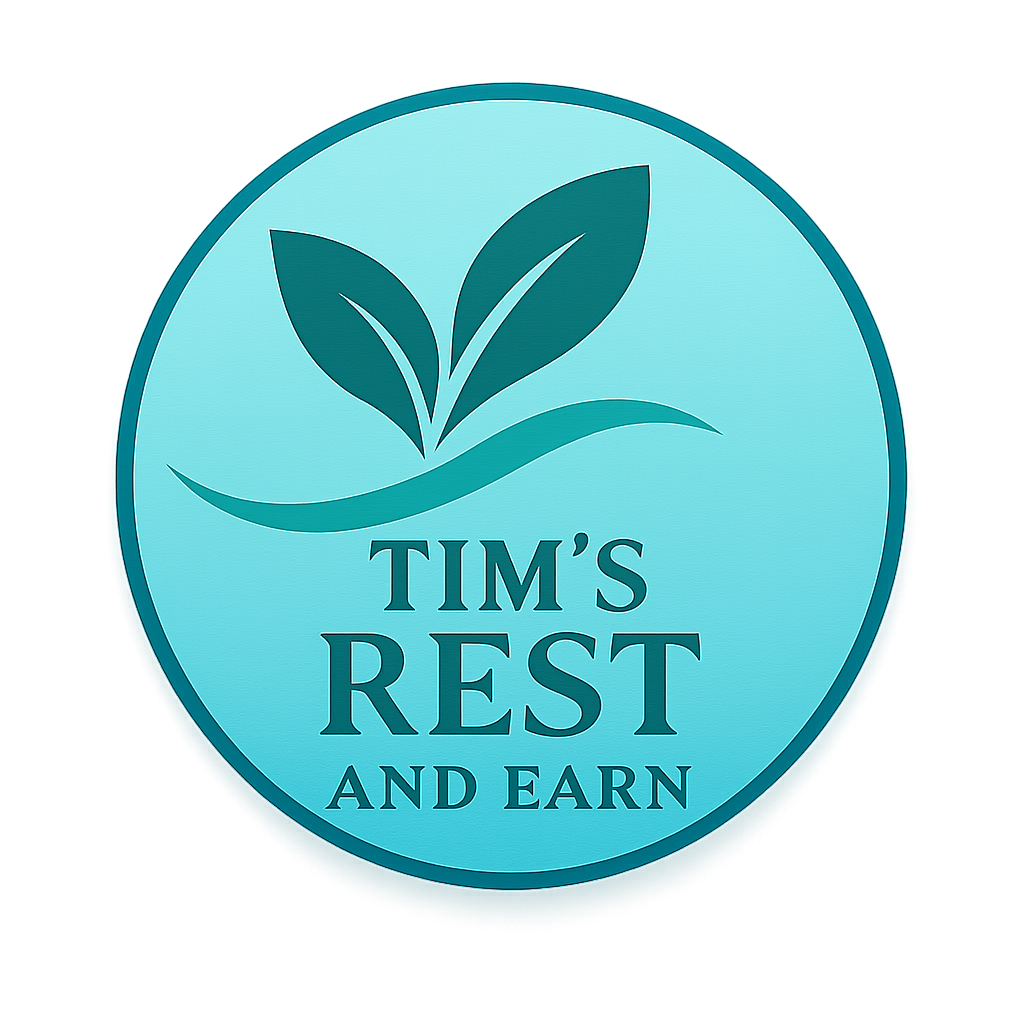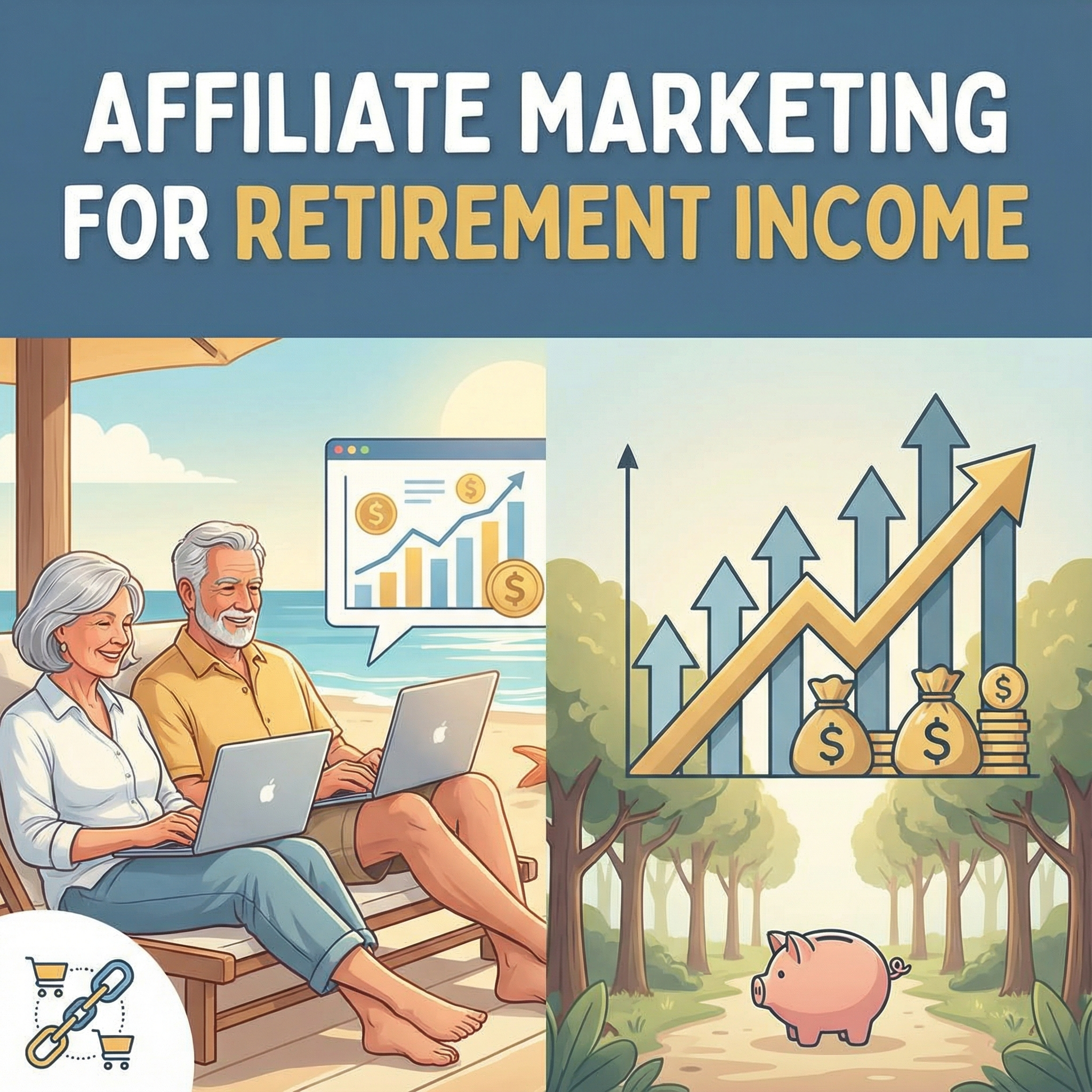Affiliate marketing became a practical solution for me while looking for ways to earn steady income during retirement. The idea of building a source of online income, especially one that grows while I enjoy more personal freedom, stood out as both appealing and rewarding. If you’re exploring affiliate marketing for a retirement plan or want to supplement your savings, understanding the essentials and avoiding common pitfalls matters a lot.
Affiliate Marketing Explained for Retirement Income
Affiliate marketing is a way to earn commissions by promoting products or services offered by another business. In simple terms, I partner with companies and share their products on my website, blog, email list, or social media. Every time someone buys through my special tracking link, I receive a percentage of the sale.
This approach does not require me to create my own products, manage shipping, or deal with customer support issues. I have found it especially helpful because I can set my schedule and grow income sources at my own pace. According to Statista, affiliate marketing spending in the U.S. alone is expected to reach $8.2 billion by 2024, showing just how popular and trusted this method really is for the modern online economy.
Why Affiliate Marketing Works So Well for Retirement
My experience with affiliate marketing started from curiosity, but quickly turned into a real asset in making my retirement funds last longer. Here are a few reasons why I think affiliate marketing fits well as a retirement income strategy:
- Low Startup Costs: Getting started took only a modest investment. Hosting, a website, and some basic tools were all I needed. There was no requirement for expensive software or complex equipment.
- Flexibility: I can work from home, a coffee shop, the library, or while traveling. With no fixed schedule, I adjust my efforts to fit around family time, rest, or travel plans without stress.
- No Inventory Needed: I never have to store or ship products myself, which simplifies things and keeps costs down dramatically.
- Passive Income Potential: Once the work is set up, posts and links can keep earning for months, even years, with less daily attention. This passive earning makes it especially attractive for retirees seeking extra freedom.
After years of the daily work grind, I truly value how this online business model puts more time back in my own hands. I get to pick projects that match my interests and pace myself to enjoy life while earning.
How Affiliate Marketing Works: Step-by-Step
It can seem a little intimidating at first, especially if you’re new to making money online. From my first steps to now, here’s the path that worked for me:
- Pick a Niche: I focused on topics that genuinely interest me, like home gardening and managing personal finances. Having a personal interest makes it easier to keep writing and builds trust with readers.
- Build a Platform: I chose to set up a simple WordPress website. This became my main hub for posting content and sharing affiliate links. Social media and email lists can add to your reach, but a website is best for long-term growth.
- Join Affiliate Programs: Signing up for programs like Amazon Associates, CJ Affiliate, and smaller, focused shops gave me plenty of options for trusted products to recommend to my audience.
- Create Valuable Content: I write honest product reviews, how-to articles, and handy guides. I always add in affiliate links naturally, aiming to help rather than just sell.
- Drive Traffic: Growing my audience meant using SEO, email newsletters, and posting in active Facebook groups. These steps boost my visibility and attract people interested in my niches.

This wasn’t instant and did require patience, but over time, being consistent grew both my audience and earnings.
Challenges and How I Handle Them
Like any business, affiliate marketing for retirement income has its share of bumps. Here’s what I faced and how I made things smoother:
- Staying Consistent: Writing regularly was hard at first. I made a content calendar and broke tasks into small pieces each week. This kept things manageable and let me build up a library of articles over time.
- Managing Expectations: Affiliate income starts slow. My early payouts took time to come in. Patience and keeping at it, even with little to show for it at first, matters most.
- Keeping Up with Technology: Keeping up with new tools and updates can be scary. I joined communities and used step-by-step guides and videos whenever I got stuck, taking each thing one at a time.
- Understanding Program Rules: Every affiliate program has its own set of rules. I always read the terms closely to avoid losing commissions or getting removed from a program. Checking in regularly for updates helps too.
Each challenge felt big at first, but once I settled into a groove, most issues faded away. It’s a process of learning and adapting; steady habits eventually make things feel second nature.
Getting Started Safely and Successfully
My first recommendation—start small and be careful of anything that promises instant results or easy riches. Quality, trustworthy training is a must. For me, the step-by-step lessons from Wealthy Affiliate steered me away from the scams that often target retirees sadly. Reading honest, detailed reviews from people who have real experience with platforms creates trust; that’s one reason I wrote my own Wealthy Affiliate review for fellow retirees.
When starting, these points make a real difference:
- Pick a niche you care about—that keeps things enjoyable for months or years to come.
- Ignore quick-buck promises. Real results usually take several months and some trial and error.

Put some money and effort into learning; a few well-chosen courses or memberships will pay off.
- Be upfront and honest in every review or recommendation. Trust builds slowly but pays dividends in affiliate marketing.
My early days were spent tweaking old posts, inserting more links carefully, and seeing which ideas got attention and sales. Many tiny tweaks added up to lasting progress. Patience and persistence are worth more than luck.
Frequently Asked Questions About Affiliate Marketing for Retirement Income
Here’s a roundup of common questions I’ve heard from retirees and newcomers getting into affiliate marketing for the first time:
Can I start affiliate marketing with no technical skills?
Yes, definitely. My own web skills were basic, but I quickly caught on with easy guides, forums, and video walkthroughs found online. Most platforms are built to be userfriendly.
How much does it cost to start?
Startup costs are manageable—think domain registration and budget-friendly website hosting. I suggest having about $100 to $200 per year for the essentials, and you can invest more for advanced tools once you grow.
Is affiliate marketing safe for seniors?
Like any online work, there are risks. Avoiding scams, sticking to known affiliate programs, and guarding your personal info make it safer. Investing in the right training and being cautious with unfamiliar offers helps prevent mistakes.
When can I expect to see steady income?
The timing is different for everyone. My first tiny payouts appeared around the third month, but it took six months for steady money. Steady publishing and tweaks to your content will help earnings grow.
Practical Steps to Help You Succeed
Based on my experience, here’s what truly helps when aiming to build retirement income with affiliate marketing:
- Stick with topics you know well or are happy to research regularly. It feels less like work when you’re interested.
- Set a weekly schedule that you can actually keep up with—consistency does the heavy lifting.
- Review your posts and figure out which ones pull in the most visitors—then double down on those topics and styles.
- Connect with support groups or online forums. Sharing wins and failures keeps motivation higher and provides help fast when stuck.
- Keep learning. New tools, techniques, and trends come up all the time in affiliate marketing, and there’s always another method to try out or skill to develop.
If I could build a steady side income from the comfort of home, anyone with patience and curiosity can too. Affiliate marketing works best for people willing to learn, test new things, and share what actually helps. The more useful and honest you are, the more people you help—and that can lead to a sustainable income and more financial freedom in your retirement years.

Click here to see the magic of
WEALTHY AFFILIATES
This post contains affiliate Links.
If you make a purchase through these links I may earn a small commission

